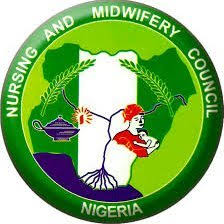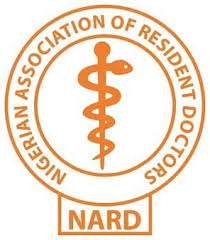I wish to start by thanking you immensely, the distinguished ladies and gentlemen of the press for responding to our invitation to this press conference at very short notice. This is a testimony of your unwavering support for NAFDAC in her concerted efforts to rid the country of substandard and falsely labelled medicines as well as other unwholesome regulated products.
The main objective of this press conference is to douse the tension and correct the misinformation on the social and mainstream media about the Forty Two (42) Antimalarial medicines purportedly banned by the European Union but allegedly circulating in the country.

It is pertinent to mention that the allegedly banned antimalarial medicines are oral monotherapies containing single Active Pharmaceutical Ingredients (API) such as;
• Artesunate as contained in Arinate Tablet
• Amodiaquine as contained in Camoquine
• Dihydroartemisinin contained in Alaxin Tablet
• Pyrimethamine contained in Daraprim Tablet
I wish to state categorically that these antimalarial monotherapies are not recommended for treatment of malaria in Nigeria. The recommended antimalarial medicines for treatment of malaria in Nigeria are ARTEMISININ COMBINATION THERAPIES (ACTs)
The use of Artemisinin Combination Therapies (ACTs) in the treatment of malaria is in line with the Guidelines for the Treatment of Malaria, 3rd edition, World Health Organization 2015, Geneva Switzerland. The Nigeria National Treatment Policy, February 2005 supports the use of ARTEMISININ COMBINATION THERAPIES.
Sulphadoxine Pyrimethamine (SP) is also a combination antimalarial medicine recommended by both the World Health Organization and the Nigeria National Anti-Malarial Treatment Policy for INTERMITTENT PREVENTIVE TREATMENT (IPT) of malaria.
In line with the recommendation of the Nigeria National Antimalarial Treatment Policy 2005 and the WHO Guidelines for Treatment of Malaria 2015, NAFDAC stopped registration of antimalarial monotherapies. The Agency in collaboration with United States Pharmacopeia (USP) carried out a survey on the quality of antimalarial medicines in 2015. The report of the survey was presented to stakeholders on 11th August 2015 and it was revealed that 3.6% of the nine hundred (900) samples of antimalarial medicines procured from six (6) geopolitical zones of the country failed quality test while 96.4% passed.
Antimalarial monotherapies in the distribution chain were captured during the survey to enable the Agency mop them from circulation. NAFDAC Zonal coordinators were directed to conduct surveillance and mop up activities. This exercise has been sustained to ensure that the incidence of oral antimalarial monotherapies is brought to the barest minimum.
Distinguished ladies and gentlemen of the press, you may wish to know that Artemisinin Combination Therapies (ACTs) are currently used in malaria endemic countries like Nigeria. There are no killer antimalarial medicines in Nigeria and it is important that you convey this message to the already agitated members of the public to avoid unnecessary panic.
I use this opportunity to reiterate our determination to continue to ensure access of Nigerians to safe and efficacious medicines and wholesome regulated products.
On behalf of the management and staff of NAFDAC, let me once again thank you most sincerely for your co-operation and unalloyed support.
God bless you all.
ABUJA: Training Schedule for Basic Life Support BLS, Pediatric Advanced Life Support (PALS), Advanced Cardiovascular Life Support ACLS, First Aid, CPR, AED
PORTHARCOURT: Training Schedule for Basic Life Support BLS, Pediatric Advanced Life Support (PALS), Advanced Cardiovascular Life Support ACLS, First Aid, CPR, AED
LAGOS: Training Schedule for Basic Life Support BLS, Pediatric Advanced Life Support (PALS), Advanced Cardiovascular Life Support ACLS, First Aid, CPR, AED




